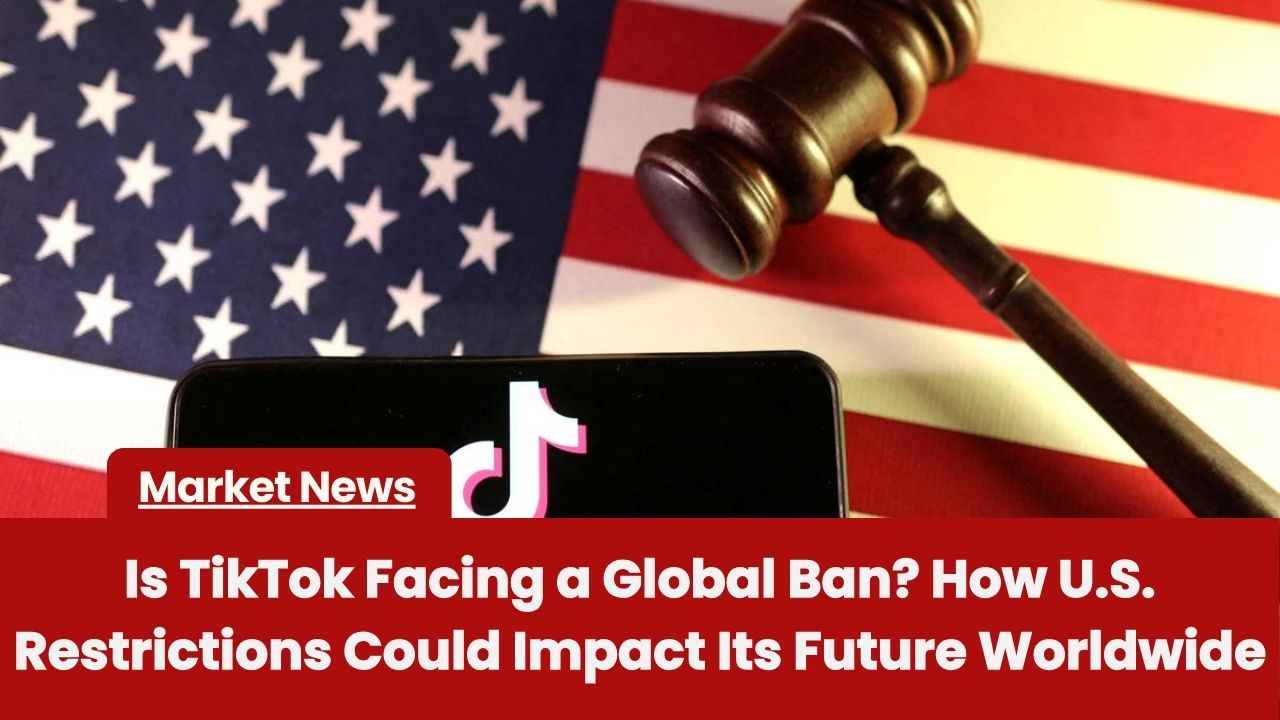TikTok Ban in the US
TikTok Ban in the US: Analysts suggest it may only be a matter of time before the U.S. ban on TikTok spreads to allied countries and beyond if the Trump administration decides to keep the app offline.
The app has been blocked in the U.S. as lawmakers deemed it a national security risk due to its parent company ByteDance’s alleged ties to the Chinese government, which ByteDance has denied. However, incoming President Trump has expressed his intention to reverse the ban, opposing it.
If the U.S. ban continues, experts cite cases involving Chinese and Russian tech firms such as Huawei and Kaspersky as examples of how such bans could spread globally. Emily Taylor, editor of the Cyber Policy Journal, points out similarities between TikTok and these cases, which suggest a gradual global ban is likely.
Both Huawei and Kaspersky have faced allegations of being a security threat, although no conclusive evidence has ever been publicly disclosed. Under the Trump administration, Kaspersky’s antivirus software was banned from U.S. federal systems in 2017 due to unproven allegations of Kremlin-linked hacking. The U.K. and other allies did the same, resulting in Kaspersky withdrawing from the U.S. and U.K. markets.
Similarly, Huawei was accused of having ties to the Chinese government, whose 5G technology was labelled a potential tool for espionage. While allies initially claimed to conduct independent assessments, intense U.S. lobbying often influenced their decisions. Countries in the Five Eyes Alliance—the U.S., U.K., Canada, Australia, and New Zealand—have banned TikTok on government devices, while other countries, including France, Belgium, and Norway, have adopted similar measures.
Ciaran Martin, the former head of the U.K.’s National Cyber Security Centre, points out that allies generally align with U.S. decisions on national security threats. However, he acknowledges that Trump’s changing stance on TikTok could disrupt this pattern. Unlike his first presidency, when he had sought to ban the app, Trump’s re-election campaign received support from TikTok videos, leading to a reversal of his previous position.
Emily Taylor agrees that TikTok’s fate depends on the level of pressure applied by the incoming administration. If the U.S. does not prioritize the issue, some countries may choose to delay or avoid implementing bans altogether.
A U.K. government spokesperson said there are currently “no plans” to ban TikTok and emphasized continued engagement with the social media platform to ensure high cybersecurity standards.
The broader impact of the U.S. ban on TikTok’s global operations remains uncertain. Losing access to 170 million U.S. users would hurt the platform, especially given the value of this marketplace for creators, advertisers, and TikTok Shop revenue. The domino effect in Western countries could further undermine the company’s financial stability and prevent the development of new features, solidifying the dominance of U.S.-based competitors like Instagram Reels and YouTube Shorts.
TikTok is already banned in countries like Pakistan, Afghanistan, and India, and operates separately from its Chinese sister app Douyin. While Kaspersky and Huawei turned to alternative markets like Africa and the Middle East to survive, TikTok’s ability to do so is uncertain.
If the ban in the U.S. inspires similar bans around the world, TikTok’s existing global prominence could diminish, potentially leading to a gradual decline and irrelevance in the tech landscape.
Also Read: Perplexity AI’s Bold Move: Aims to Merge with TikTok U.S. in Game-Changing Deal
I am a content writer and financial analyst with deep knowledge of mutual funds and the stock market. My focus is always on delivering authentic, reader-first content.

